Lifestyle
Written by Lindsay Krause, photography by David Rogers
Wedged between Zambia, Tanzania, Botswana and Mozambique are the vivid landscapes of Malawi and the life force behind this nation – Lake Malawi. Discovered by David Livingstone over 150 years ago, “the Lake of Stars” dominates the length of the eastern border, covering a length of 365 miles. The continent’s third largest lake is lined with white sand beaches and rural fishing villages, attracting both locals and international travelers to visit its shores. With over 1000 species of endemic fish, the lake offers some of the best freshwater diving in the world. Once you’ve ticked snorkeling, canoeing and sailing off your list, get back on land and discover one of a kind African design on Likoma Island.
Located in the far north of Lake Malawi you will find Likoma Island — just 10 square miles in size. With one small dirt road running through the lush island, a visit to Likoma takes you to a time of simplicity and true hand-to-mouth living. Previously surviving largely by fishing and rice farming, the 9000 villagers have grouped together and found a new means of sustainable living through African design and craftsmanship at Katundu Workshop.
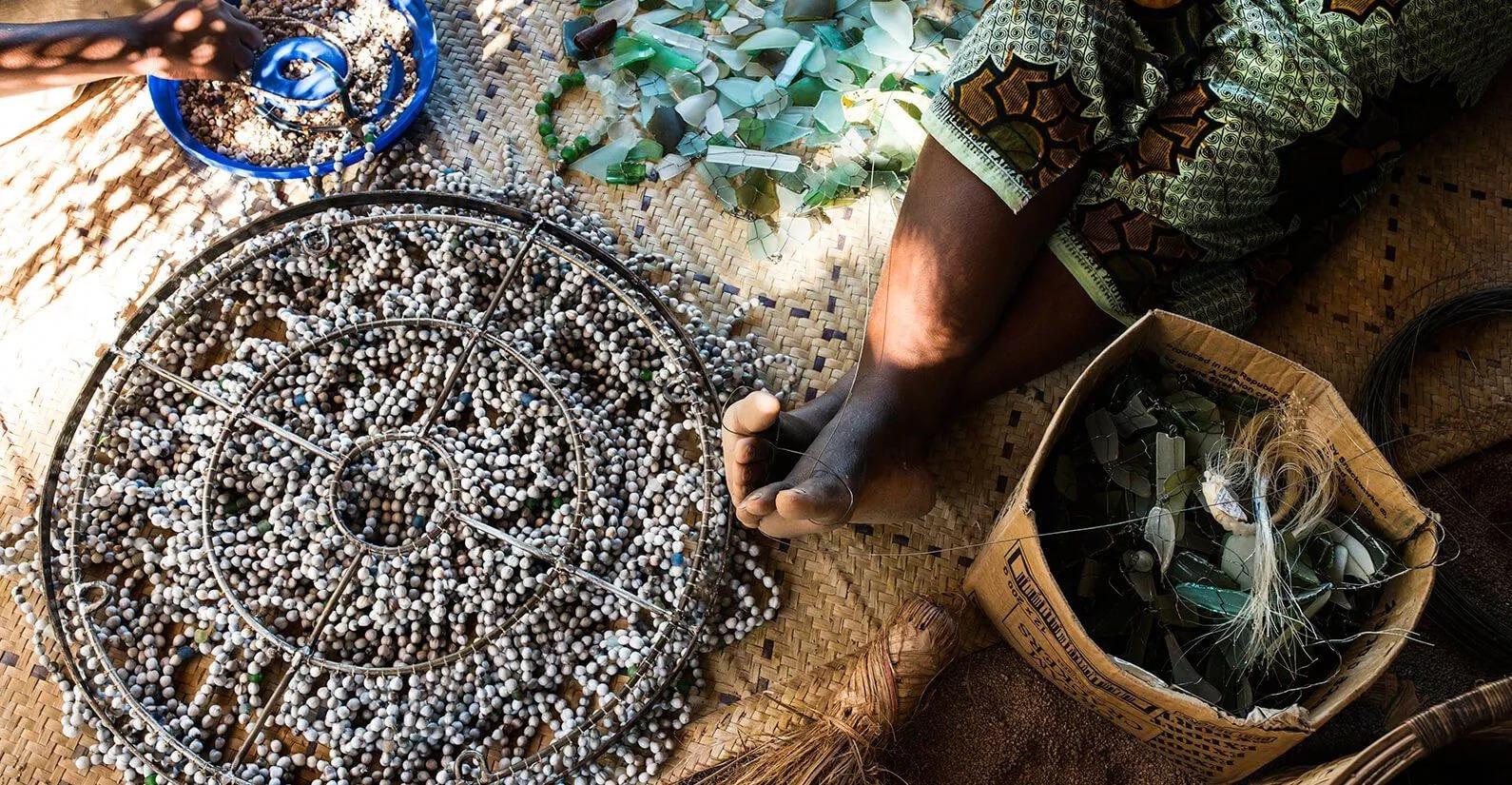
Founded by Suzie Lightfoot in 2006, the artisans at Katundu Workshop design and meticulously create luxury hand-made items in an ethical working environment. A community project, Katundu aims to alleviate poverty on Likoma Island by empowering women, instilling pride and teaching them skills to improve their circumstances and their local community.
Run by Lisa Njakale and Phillirani Mwase, the growing company has opened a realm of opportunity to a permanent team of 32 female designers, carpenters and tailors- 75% of which are related to the local orphan program. The diverse and extremely creative product range of hand-beaded textiles, bespoke lighting and unique interior pieces are designed and hand-made on site using sustainable materials. From discarded glass bottles to abandoned driftwood, collecting materials for the designs has become a community effort encouraging self-sufficiency and providing stability to the people of Likoma.
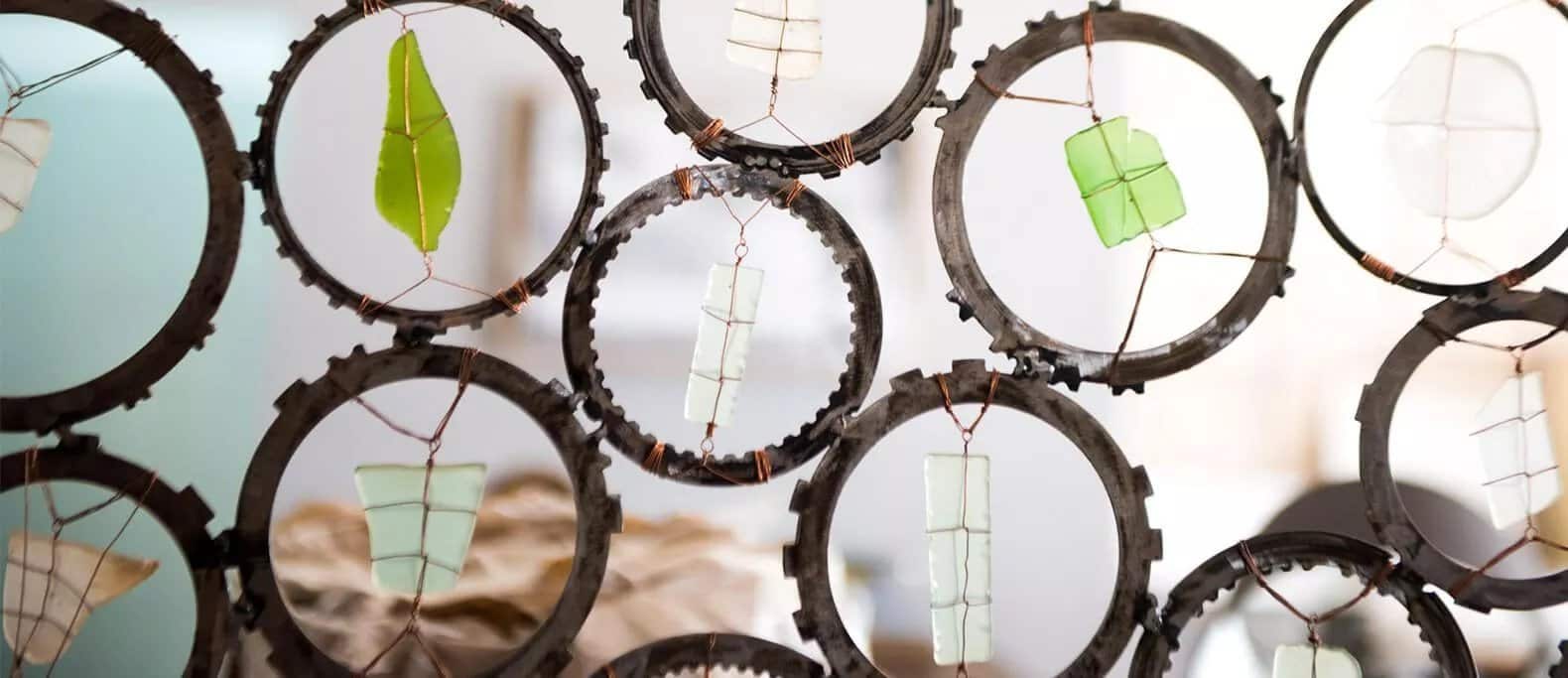
“We have a piecework initiative where artisans are paid for the items they produce. We offer in-house training with the aim to encourage small entrepreneurial businesses to develop within the surrounding villages. Fibre is harvested from Baobab trees and maize leaves are twisted and plaited into string, mud clay is rolled and baked underground, then painted to create beads – all made from peoples homes in the surrounding villages.”
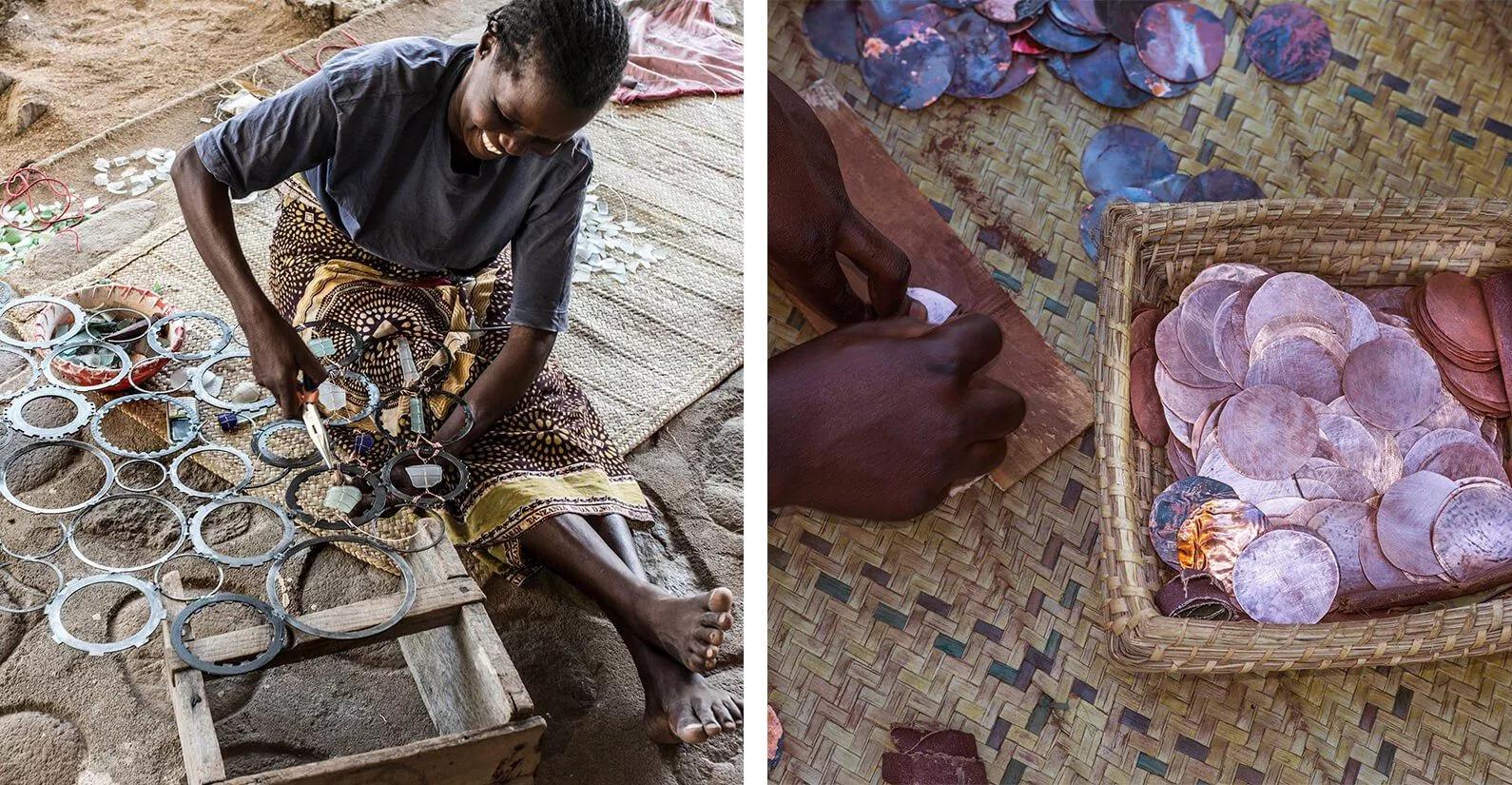
Katundu’s artisanal products are all handmade on Likoma Island — glass is tumbled at the workshop, deserted fishing boats are fashioned into unique installation pieces and clay beads are rolled in the nearby village. The vibrant creative space of the workshop is where the magic happens!
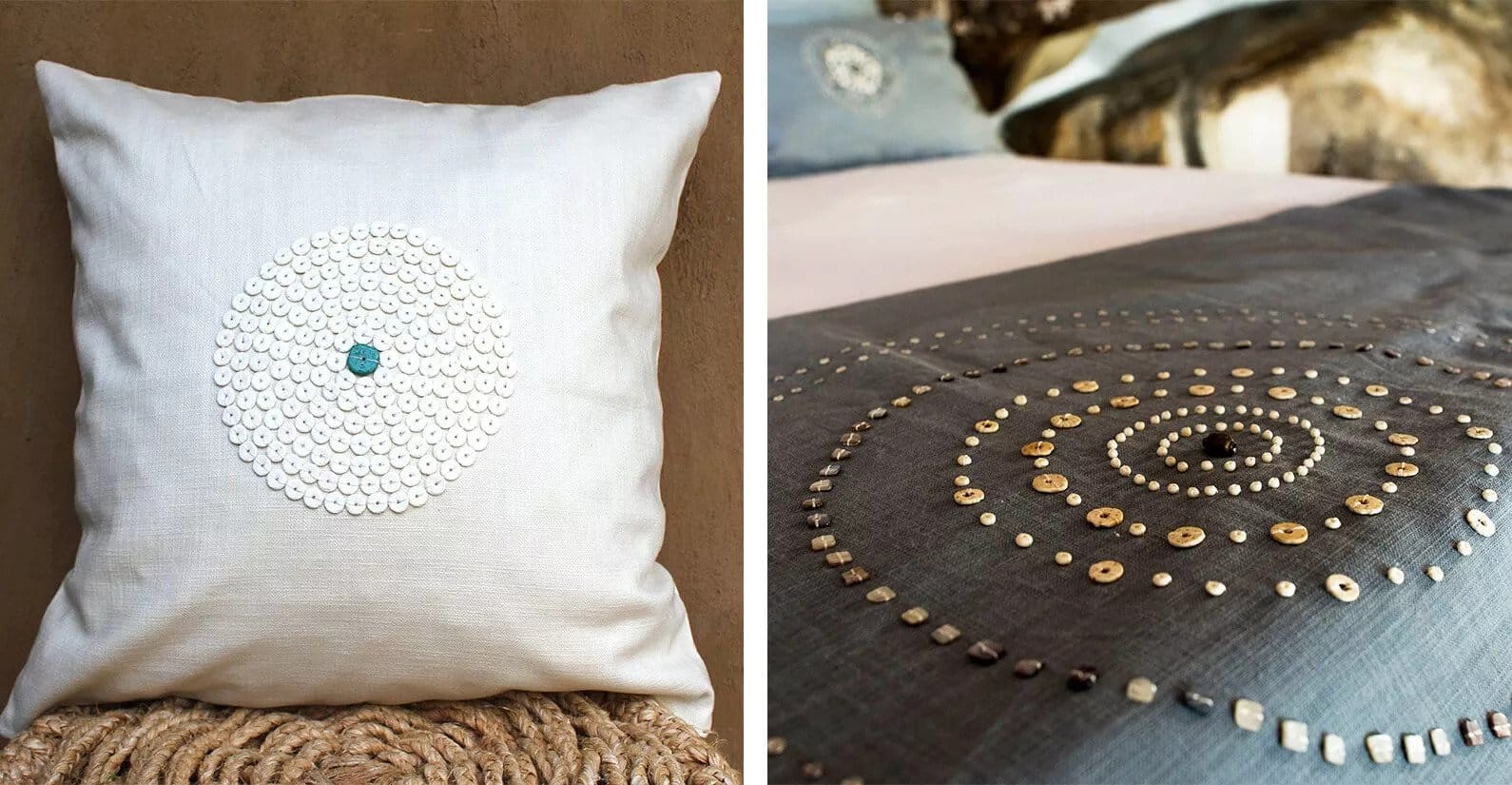
Katundu Workshop launched their signature range with a line of hand-beaded textiles, a true reflection of African design. Cushion covers, table runners and bed throws are made using high-quality South-African linen with hand-stitched beads made of bronze pendants, ostrich egg, coconut and seashells.
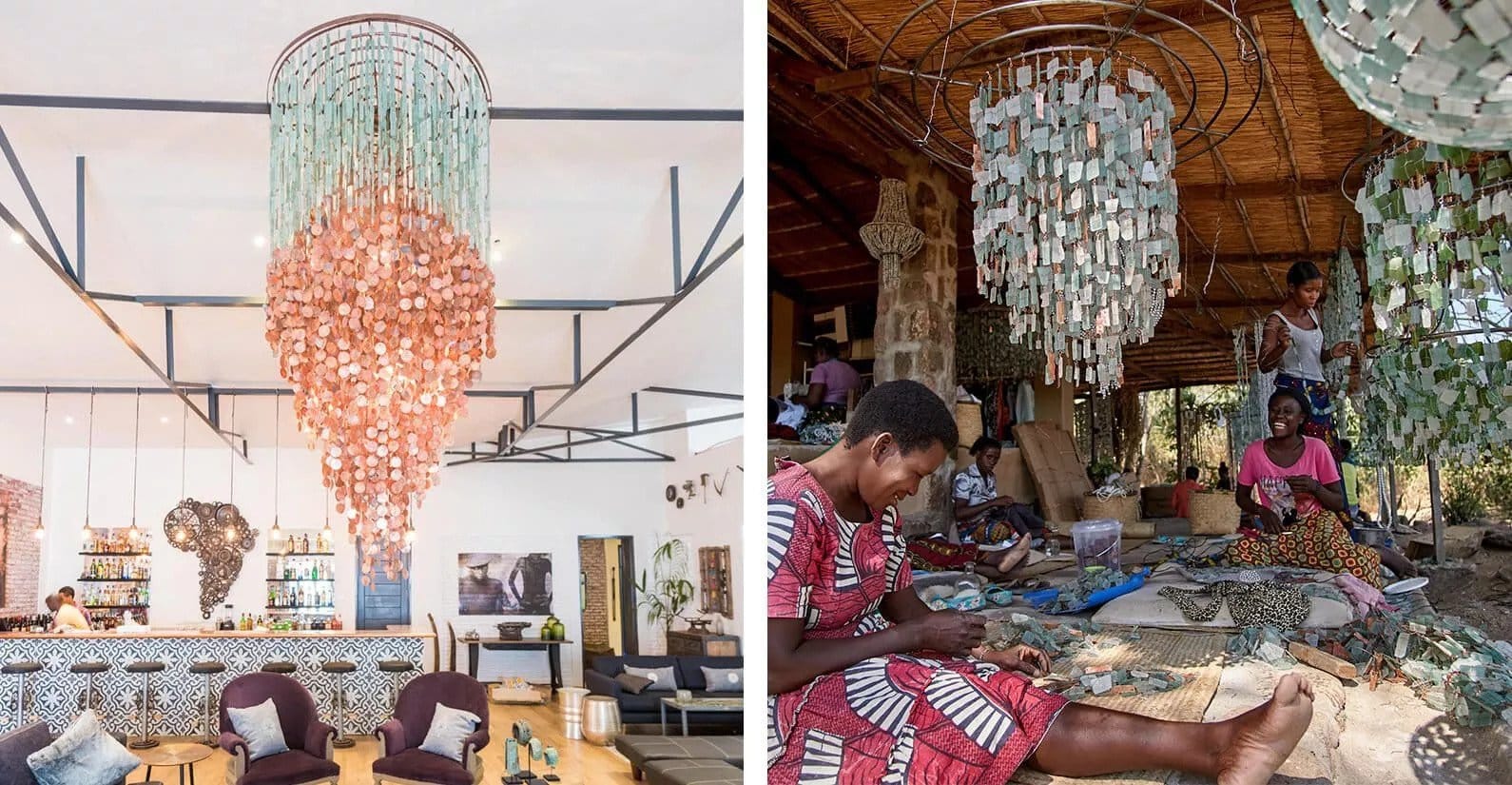
Katundu’s bespoke lighting range boasts recycling at its best. The pieces are designed with tumbled glass collected for the workshop by the community, local clay beads, grey imfibinga seeds from Nkhata Bay and hand-punched copper discs from disposed copper geezers. The eye-catching designs have received high praises from the international market and are available as statement chandeliers, delicate lampshades and hanging wall pendants.
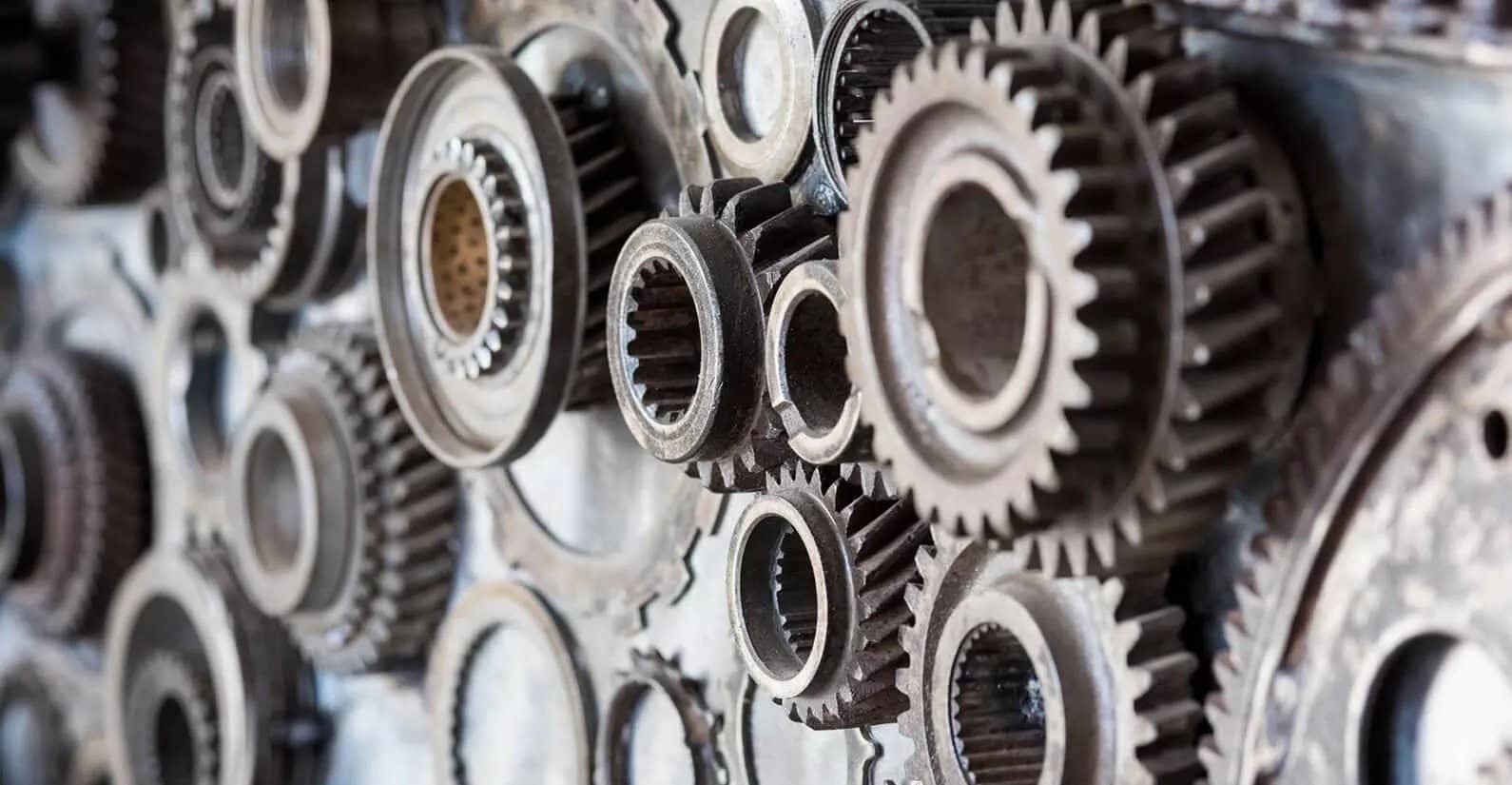
A true display of creativity at Katundu can be found in their unique interior statement pieces. Combining industrial scraps rummaged from the markets in Malawi’s capital, Lilongwe, the ladies at Katundu weld anything from piston rings to bicycle cogs to make spectacular coffee tables, wall pieces and room dividers.
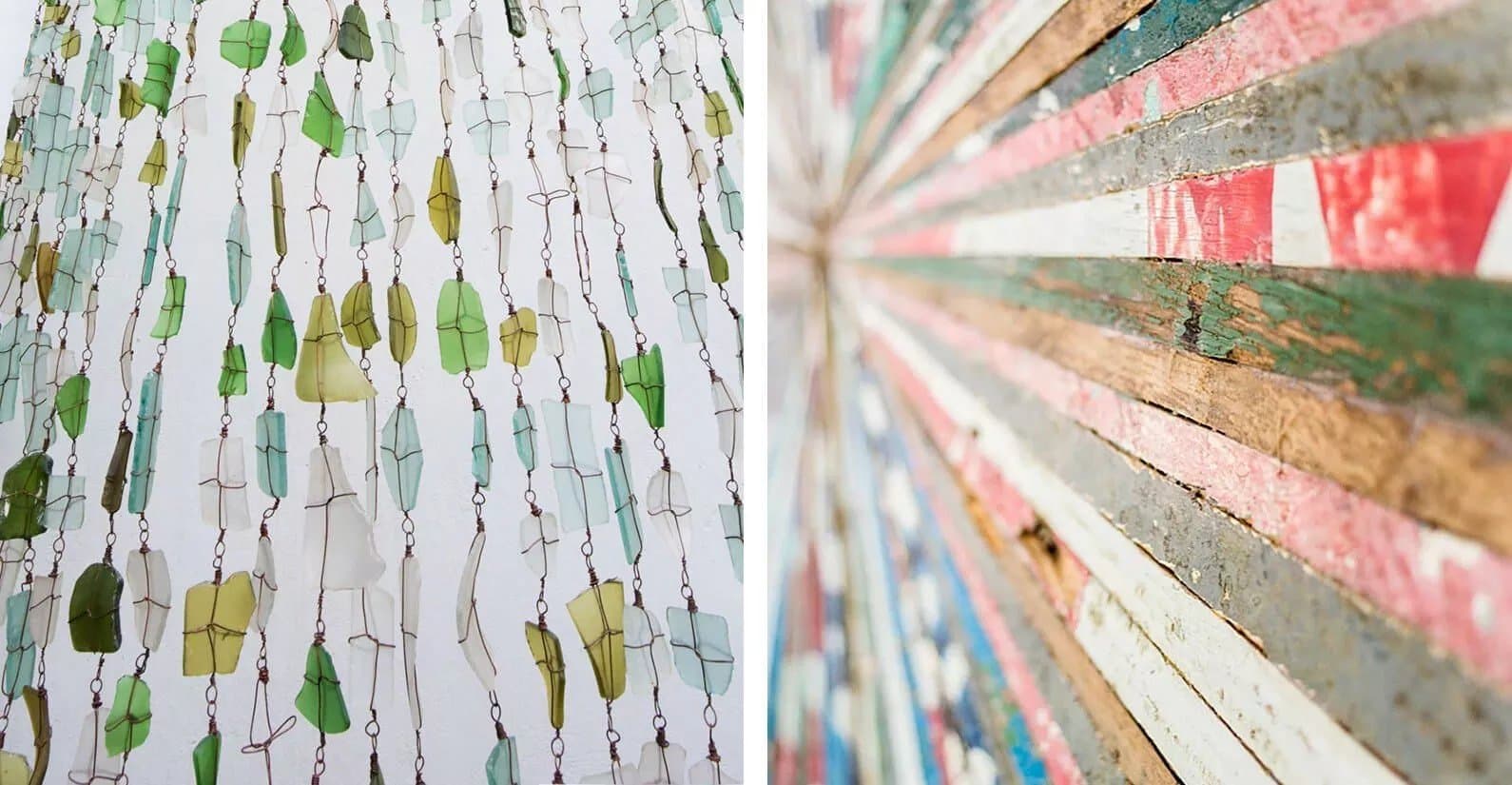
The same can be said for their reclaimed wood pieces. Made from recycled driftwood from sunken fisherman’s boats and canoes, the ladies at Katundu transform the wood into intricate mirror and picture frames, bar stools and coffee tables.
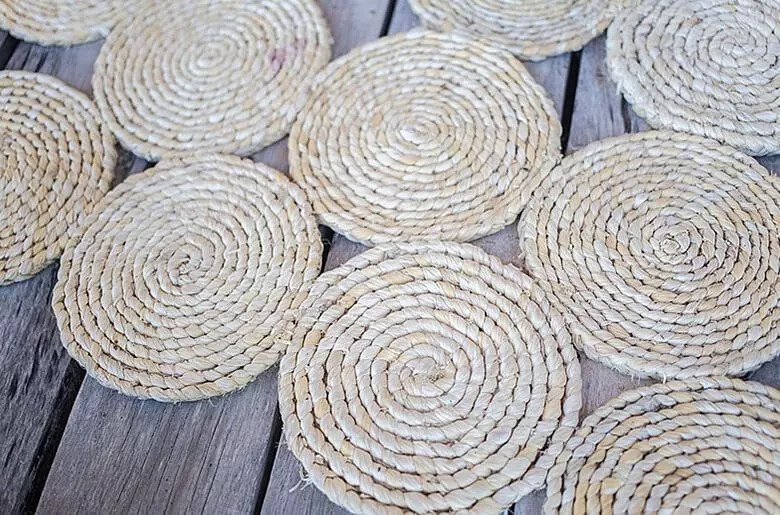
And last, but certainly not least, the island’s abundance of baobab trees have allowed for the production of a range of 100% homegrown baobab mats and baskets.
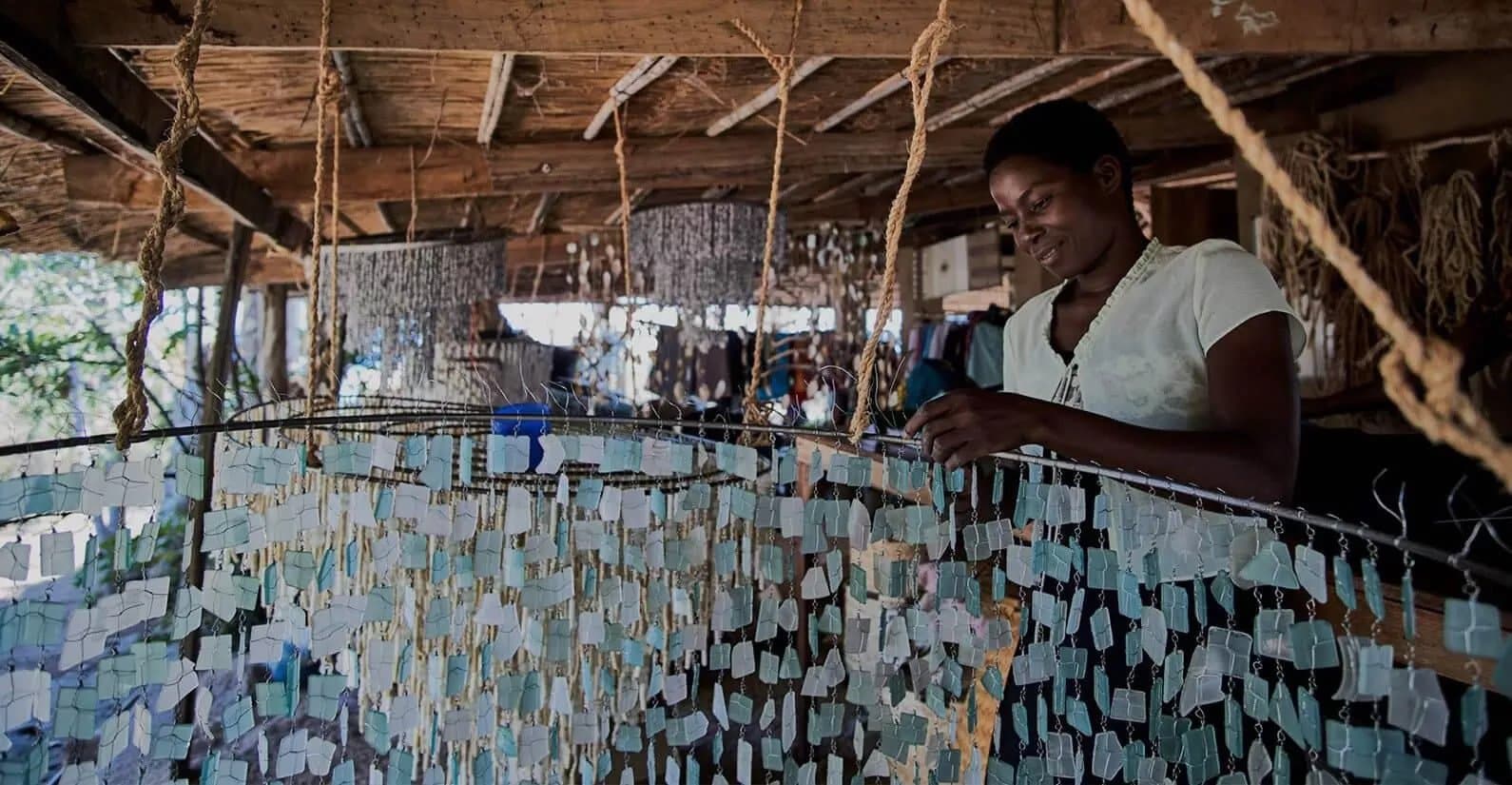
Katundu Workshop’s success is a true depiction of a community working together to become self-sufficient through craftsmanship. From fisherman bringing in broken boats to villagers collecting glass bottles to be recycled, the workshop has become a local hub of creativity and opportunity. See the African design on a cultural tour of Katundu Workshop on our 9 day Lake Malawi & Majete Safari or contact our Adventurists to arrange a visit to Katundu during your stay in Malawi.
Katundu is open from Monday to Friday from 07h30 – 14h30 and on Saturday from 07h30 – 11h30.
Check out more of photographer David Roger’s work here.
Ker & Downey® Africa is compliant with COVID-19 Industry Protocols.


Head office: 7 Bree Street, 6th Floor, Touchstone House, Cape Town, South Africa
+27 (0)21 201 2484
[email protected]
United Kingdom: Sportsman Farm, St Michaels, Tenterden, Kent
Ker & Downey® Africa is compliant with COVID-19 Industry Protocols.